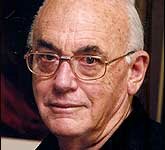Being a Secular Jew in Israel
By Dan Mahler 
On the surface there seems to be antagonism between the terms "Jew" and "secular." Most people accept "Judaism" as a religion, or at least as something strongly connected with religion. Although secular Jews are recognized, in Israel many people refuse to accept the existence and legitimacy of “secular Judaism.”
As a result the secular, the atheist, or agnostic Jew finds his identity questioned: he is free to define himself as a secular Jew, but his community of Secular Judaism is still not officially recognized here.
This unique politicization of Judaism in Israel has historical origins. From the early Israelite kingdoms of the bible, to the later establishment of the Jewish diaspora all over the world, Jewish people have been heterogeneous in their religious belief, consisting of various religious and secular elements. Being in diaspora, the Jewish people had no official or practical national foundation, and the various Jewish communities searched for a common, unifying factor, which was Judaism, including its religious components. The community center—the synagogue—was for many a location for social gathering, not obligatorily a religious space. Before the Renaissance religious scripts were, for all peoples, the only cultural source. Since then, however, art and science have become the common property of many, and the effects of this knowledge have become part of what it is to be a modern human being, including, of course, the Jewish individual.
For the Jewish people the rebirth of its ancient language—Hebrew—by Eliezer Ben-Yehuda at the end of the 19th century, was a turning point when literature, arts, science and social studies became for many the natural components of the Jewish individual's identity. At the same time the archaic, irrelevant, unnatural, and sometimes objectionable Jewish religious identity, including the belief in God, together with God's commandments and religious rituals, ceased to be necessary factors.
However, despite this, the Orthodox Jewish religious establishment, like any other religious establishment, did not stop from advancing its objectives. This included the rejection of any definition of Judaism that did not link with their Orthodox beliefs. The terms "Judaism" and "religion" became so firmly equivalent in people's minds, that in 1948, during the process of establishing the newly born Jewish state of Israel, the secular leaders of Israel transferred control over marriage, divorce, food production and import, transport on the Shabbat, and other matters, solely to the Jewish religious establishment. The Jewish religious establishment has also rewritten Jewish history according to their perception, leading people to believe that the Jewish Orthodoxy was, is, and will be the only representative of Judaism.
Today, the secular Jew in contemporary Israel finds himself torn between two forces: on one hand stands his legitimate rights to define himself as a secular, atheistic, or agnostic Jew; and on the other hand there is the state’s powerful religious establishment responsible for how and with whom one can marry or not, how to divorce and when it is forbidden, what will be the fate of many outsiders wishing to marry or divorce, what to eat and what it is forbidden to eat, etc. In Israel the state gives this ultimate power to the religious Orthodox establishment.
Secular Jews, those who accept the world without a superpower God, nevertheless participate in religious rituals and ceremonies. This renders it nearly impossible to debate secularism, or the existence or nonexistence of God, in an ideological and philosophical manner. Instead, it is a political battle, in which those who believe that there has always been one type of Judaism try to mute the discussion on secular Jewish identity.
This article originally appeared in http://www.eclipse.co.uk/thoughts/danmahler.htm. This adaptation appears with the author’s permission.
